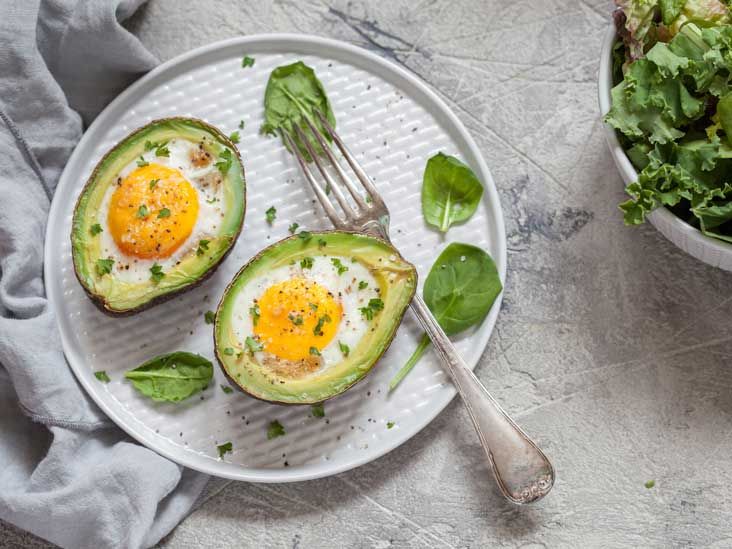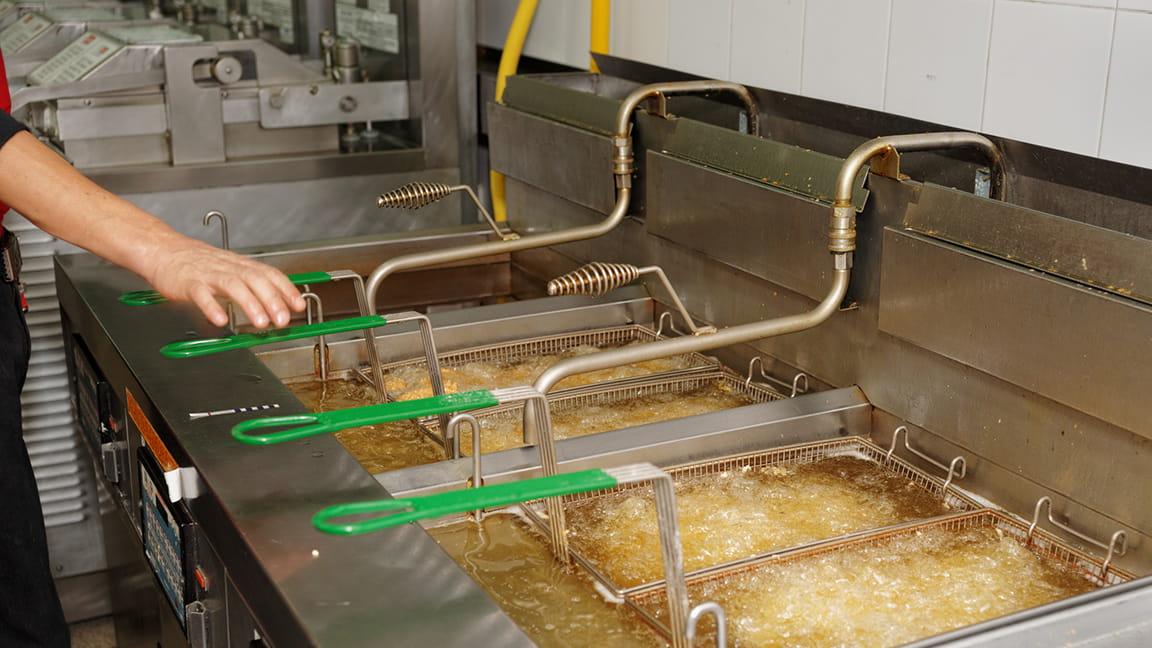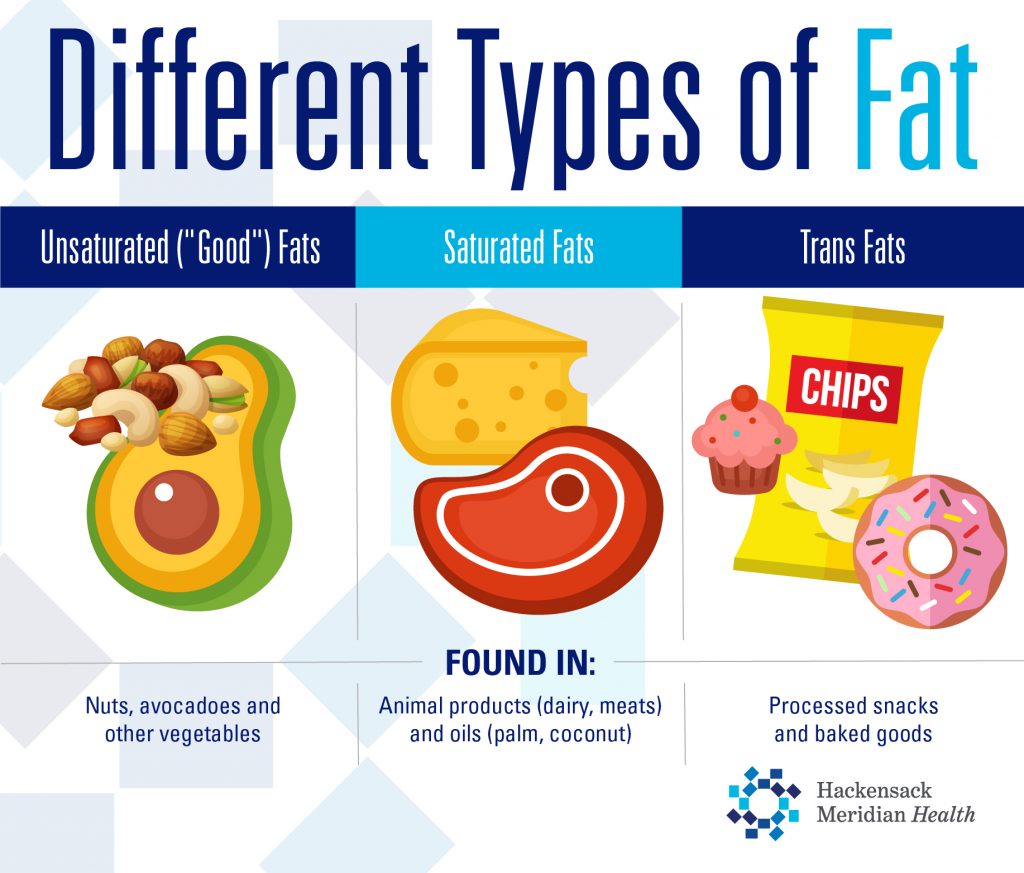Fat is a fundamental supplement with benefits like giving energy and safeguarding cells. In any case, only one out of every odd sort of fat is really great for your body. Proof shows that eating a few sorts of fat is terrible for yourself and may fundamentally increment irritation in your body.
If you're following the popular ketogenic (keto) diet, you've probably heard about the importance of consuming "good fats." These healthy fats, such as avocados, nuts, and olive oil, are a staple in the keto community. However, what about the not-so-good fats? In this article, we'll dive into the topic of "bad keto fats" and discuss the hidden dangers of some fatty foods that can sabotage your journey towards ketosis.
Types of Fats To Avoid On Keto

There's more than one sort of fat you'll need to stay away from particularly on a high-fat eating routine like keto. These "terrible" fats can go from southern style food sources to margarine.
As an easy route to using sound judgment, you can likewise remember that most unfortunate fats share one thing for all intents and purpose: they're exceptionally handled or contain added substances that separate them from regular, entire food wellsprings of fat.
Artificial Trans Fats

Fake trans-fats are made by adding a hydrogen molecule to unsaturated fat, bringing about a fat that is strong at room temperature. Hydrogenation of oils to make margarine and vegetable shortening creates a lot of trans-fats.
Makers put oils through hydrogenation to work on their surface and time span of usability. Trans fats unfavorably affect wellbeing, including expanding the gamble for cardiovascular infection and other ongoing sicknesses like sort 2 diabetes.
Administering bodies on nourishment including the FDA, CDC, and American Heart Affiliation (AHA) perceive trans fats as terrible and suggest that we eat as tad of them as could really be expected.
Highly Processed Fats

Fats that go through broad measures of handling can be hurtful in light of the fact that they go through a few phases of warming at very high temperatures.
At the point when fats are warmed, they go through oxidative harm, shaping free revolutionaries. Free revolutionaries from handled fats are negative to your wellbeing since they cause oxidative harm and aggravation in the body.
Handled oils likewise will generally have elevated degrees of omega-6 unsaturated fats, which can be perilous whenever consumed in overabundance. Concentrates on show that consuming a lot of omega-6 builds the gamble of coronary illness and other persistent sicknesses.
Then again, note that while they might seem like vegetable oils, avocado oil and olive oil are sound fats (which we'll cover later in this article), not modern vegetable or seed oils.
Fats with Added Preservatives or Other Chemicals
A few fats like margarine and vegetable oil additionally contain engineered additives to delay their time span of usability. As you would envision, adding different synthetic substances just exacerbates these generally undesirable fats for your wellbeing.
Producers add manufactured cancer prevention agents like counterfeit BHA (butylated hydroxyanisole), BHT (butylated hydroxytoluene), and TBHQ (tertiary butyl hydroquinone) to shield the oil from oxidation.
The FDA thinks about these added substances protected in restricted amounts, yet a few creature concentrates on connect BHA and BHT to malignant growth, and the US Public Toxicology Program characterizes BHA as "sensibly expected to be a human cancer-causing agent.
Handled oils like canola and sunflower may likewise contain emulsifiers, varieties, and flavors with comparably obscure wellbeing impacts.
Fats Made From GMO Seeds
GMOs or hereditarily changed life forms are plants or other living organic entities whose hereditary qualities are misleadingly controlled to support yields or accomplish different properties that increment benefit.
There's an absence of indisputable proof around the likely damages of GMO food varieties, and little examination has been finished on them to decide their drawn out consequences for wellbeing.
Seeds like corn, rapeseed, and soybeans generally go through hereditary designing to make them more impervious to vermin and illnesses. Food producers then, at that point, utilize these hereditarily changed seeds to make vegetable oil. For instance, more than 90% of the rapeseed or canola filled in the US is GMO.
Protection from herbicides like Gathering or glyphosate is one more typical justification for hereditary control. Therefore, fats produced using GMO seeds are likewise bound to contain glyphosate, which studies connect with stomach medical issues and malignant growth.
While the potential wellbeing impacts of GMOs stay obscure, there's positively no advantage to remembering them for your eating regimen beside conceivably saving a couple of pennies for each serving.
Deep-fried Foods
While profound broiling, you're preparing food in oil warmed up to 350oF (175oC) or higher. At these temperatures, the oil sythesis begins to change, producing hurtful free revolutionaries. In cafés, oil is here and there utilized many times before it's changed out.
The free revolutionaries created in oil during profound searing have been displayed to increment aggravation levels in the body. Numerous ongoing infections including cardiovascular sicknesses, Alzheimer's illness, malignant growth, dementia, and type 2 diabetes are connected to persistent aggravation.
Omega-6 Fats
Omega-6 fats are a kind of unsaturated fat that is gainful in limited quantities yet, connected with hurt in higher admission levels. Eating a lot of omega-6 builds the gamble of provocative sicknesses like liver illness, incendiary inside infection (IBD), and cardiovascular infection .
Studies recommend that we ought to all attempt to bring down the proportion of omega-6 fats to omega-3 fats in our eating routine. Expected wellsprings of omega-6 fats in your eating regimen incorporate safflower oil, sunflower oil, and corn oil. The examination prescribed proportions for omega-6 to omega-3 fats range coordinated (equivalent adds up) to two to one (something like two times as much omega-6 comparative with omega-3 admission) for ideal wellbeing.
What About Cholesterol?
Cholesterol is a sort of fat present in all creatures. The human body makes its own cholesterol yet it can likewise come from eating creature food sources.
The food varieties most extravagant in cholesterol are creature food sources like eggs, meat, and dairy items. Nonetheless, as long as these food sources are essential for a solid adjusted diet, their cholesterol content ought not be an issue.
The reality: late examinations recommend that reality with regards to dietary cholesterol is that it no affects your gamble for coronary illness (*). Incidentally, even the alleged awful cholesterol (LDL cholesterol) may not be a significant determiner for heart wellbeing.
Good Fats
Rather than undesirable fats, most sound fats are natural or insignificantly handled. This is the very thing that you want to be familiar with great fats to eat, on a low-carb diet or any solid eating routine.
Saturated Fats
Assuming you've been following sustenance guidance for some time, you may be astounded that soaked fats didn't make the "terrible fats" list. While it's truly still a questionable issue, a few ongoing investigations really show no connection between practicing good eating habits soaked fats and hazard for coronary illness.
This kind of fat contains no twofold securities in its construction (not normal for mono and polyunsaturated, which truly do contain this sort of sub-atomic security). Therefore, soaked fats are normally more steady and less inclined to go through oxidation. Subsequently, they're frequently less handled and as we shrouded in the past segment on terrible fats, elevated degrees of handling and oxidation are both significant marks of unfortunate fats.
Monounsaturated Fats
Monounsaturated unsaturated fats (MUFAs) are fats that have just a single twofold carbon security in their sub-atomic design. A lot of proof connections the admission of monounsaturated fats to medical advantages. 32 investigations on just about 850,000 individuals found that consuming MUFAs decreases the gamble of cardiovascular sickness, stroke, and mortality.
Fats on Keto: Which Ones Should You Choose?
Fats to stay away from on keto incorporate profoundly handled or modern oils like canola oil, sunflower oil, safflower oil, and corn oil, margarine, southern style food varieties, and other exceptionally handled unhealthy foods. All things considered, utilize sound wellsprings of fats like avocados, olive oil, meat, chicken, eggs, nuts, seeds, dairy, fish, and great fat enhancements like MCT oil powder.
Frequently Asked Questions!
What are bad fats in keto?
Trans fat is a complete no-no when it comes to the keto. Trans fats have no health benefits, raises the level of bad cholesterol and increases the risk of heart disease. Fried food, baked products, chips, popcorn are some common sources of trans fat.
What is the best fat to eat on keto?
Healthful fats for the keto diet include oily fish, olive oil, avocado oil, nuts, nut butters, and seeds. A person following this diet may wish to eat more white meat than red meat and avoid processed meat products.
Can you eat too much fat on keto?
A final guideline: Even if you're on keto, portions of fat still matter, says Jill Gullotta, RDN, the founder of Jill Gullotta Nurition in White Plains, New York. “How much you specifically eat depends on your calorie needs and goals, but overconsuming fat can cause weight gain,” she says.
Is peanut butter good for keto?
Peanut butter can definitely be part of a keto diet, but it's best to stick to plain options that are free of extra flavors and sweeteners. Almond butter is a good choice, too, and it's slightly lower in carbs. Additionally, you should be mindful of your portion size if you're trying to lose weight.
Is cheese OK for keto?
This means cheese is an excellent food option because most types are high in fat, moderate in protein, and low in carbs. Still, some cheeses are more suitable than others due to variations in fat content and level of processing. Cheese is an ideal keto food due to its high fat, moderate protein, and low carb content.
What foods are 100% carb free?
Foods that are typically allowed on a no-carb diet include: Meat and low-carb animal products: chicken, beef, turkey, lamb, venison, bison, pork, eggs, butter, lard, cheese. Seafood: salmon, tilapia, cod, shrimp, sardines, herring, crab. Seasonings: herbs and spices.








